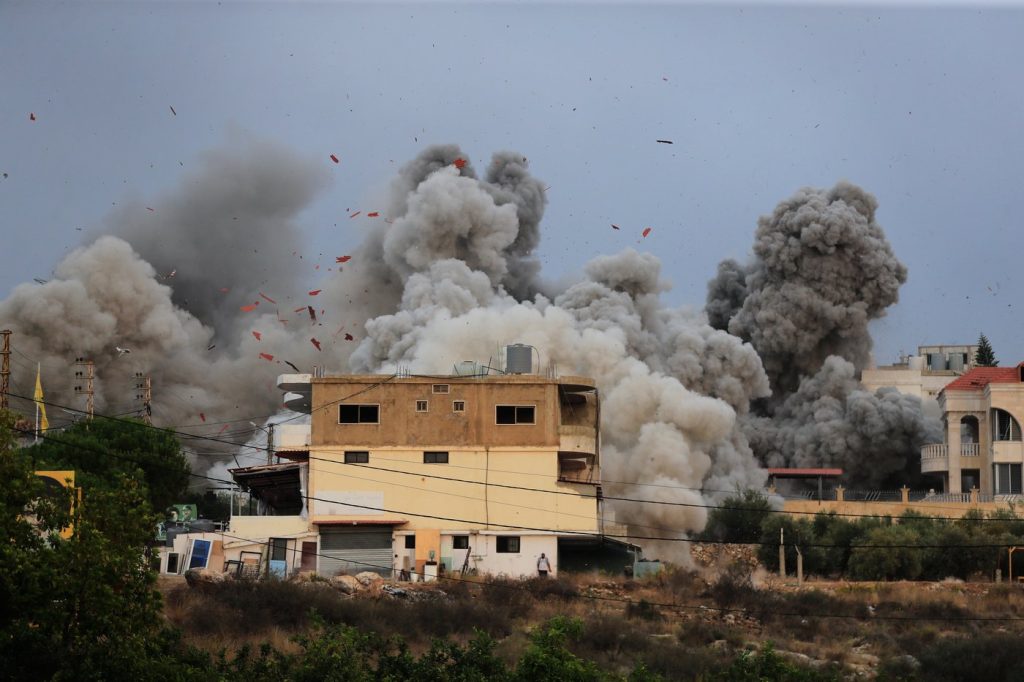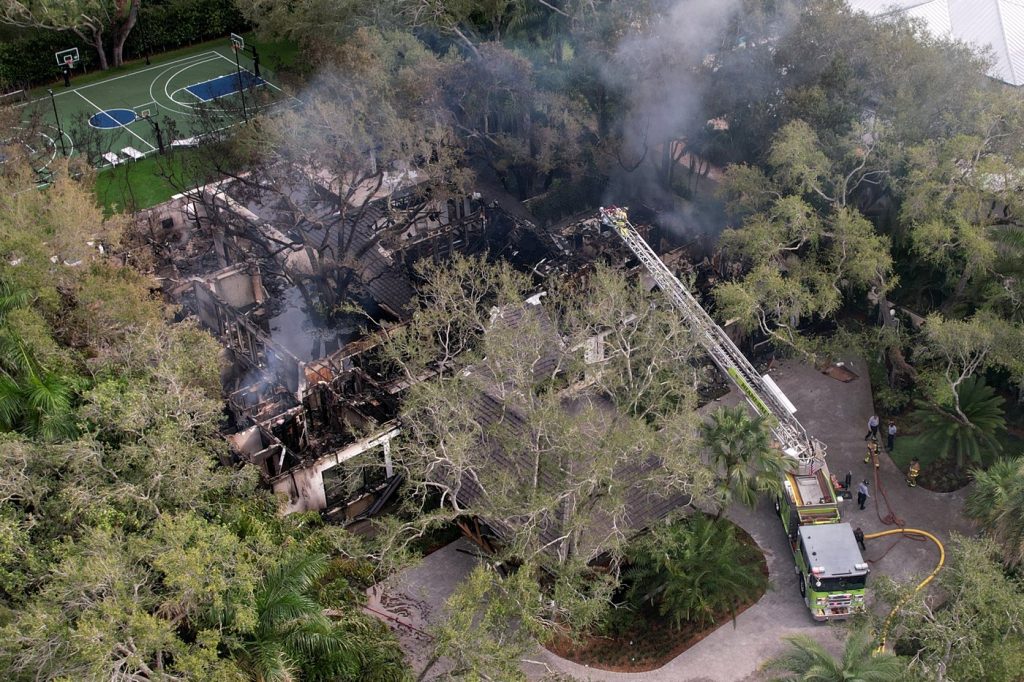BEIRUT (AP) — On November 6, 2025, Israeli jets executed airstrikes on multiple towns in southern Lebanon, escalating their nearly daily bombardment of the region. This military action followed warnings from Israeli officials urging residents to evacuate the targeted areas, citing their use by the militant group Hezbollah.
Israeli military spokesperson Avichay Adraee warned residents in Tayba, Teir Debba, and Aita al-Jabal to flee at least 500 meters away from residential buildings designated for attack. He explained that these buildings were being utilized by Hezbollah. Additional warnings were later issued for the towns of Zawtar al-Sharqiyah and Kfar Dounin. The Israeli military claimed the airstrikes aimed at military infrastructure used by Hezbollah, including weapons storage facilities located in civilian-populated areas.
Israel accused Hezbollah of attempting to rebuild its military capabilities nearly one year after a U.S.-brokered ceasefire was established following a protracted conflict. Although many residents evacuated the threatened locations, the Lebanese Ministry of Health reported one individual wounded due to the airstrikes.
Israeli government spokesperson Shosh Bedrosian emphasized that Israel would not permit Hezbollah to rearm or regain strength to pose a threat to the state of Israel. The airstrikes occurred while Lebanese Prime Minister Nawaf Salam convened his government in Beirut to discuss a military plan aimed at disarming Hezbollah and other non-state armed groups. Information Minister Paul Morcos stated that the cabinet recognized the progress made by the army despite the ongoing challenges, primarily attributed to Israeli hostilities.
Lebanese President Joseph Aoun has criticized Israel’s airstrikes and its continuous occupation of five hilltop positions within Lebanese territory. However, he expressed openness to negotiations with Israel to resolve the ongoing tensions. Following the attacks, Aoun remarked that, "Every time Lebanon expresses its openness to peaceful negotiations, Israel intensifies its aggression," further asserting that Israel has shown a disregard for any potential negotiated settlement during the past year.
Israel contends that its airstrikes have a specific focus on Hezbollah military personnel and infrastructure, whereas the Lebanese government maintains that the strikes have predominantly affected civilians and unrelated infrastructure. Hezbollah's military capabilities were significantly diminished following Israel's intensive bombardments during the 2024 conflict; however, the group has yet to disarm. Hezbollah leader Sheikh Naim Kassem stated that the organization would remain prepared to fight, despite any limitations in their operational capabilities.
Both parties have accused each other of breaching the ceasefire that purportedly ended the last conflict between Israel and Hezbollah in November 2023, ignited by the October 7 Hamas-led attack on Israel, which subsequently sparked the ongoing war in Gaza. Following these events, Hezbollah initiated rocket fire into northern Israel in solidarity with Hamas, leading to reciprocal Israeli airstrikes and artillery bombardments that escalated into a full-scale war by September 2024.
Since the ceasefire was established, Lebanon’s health ministry has reported over 270 fatalities and approximately 850 injuries as a direct result of Israeli military actions, with the United Nations confirming that at least 107 of the deceased were civilians or non-combatants. No Israeli casualties have been reported from Lebanese territory since the ceasefire, although Hezbollah claims to have executed one operation following the agreement.
Additionally, on the same day, the U.S. Treasury Department announced a new set of sanctions targeting financial operatives managing the flow of funds from Iran to Hezbollah. These sanctions encompass licensed and unlicensed money exchange shops that allegedly fail to perform adequate customer screenings, allowing Hezbollah to exploit Lebanon's cash-based economy for illicit money laundering.












